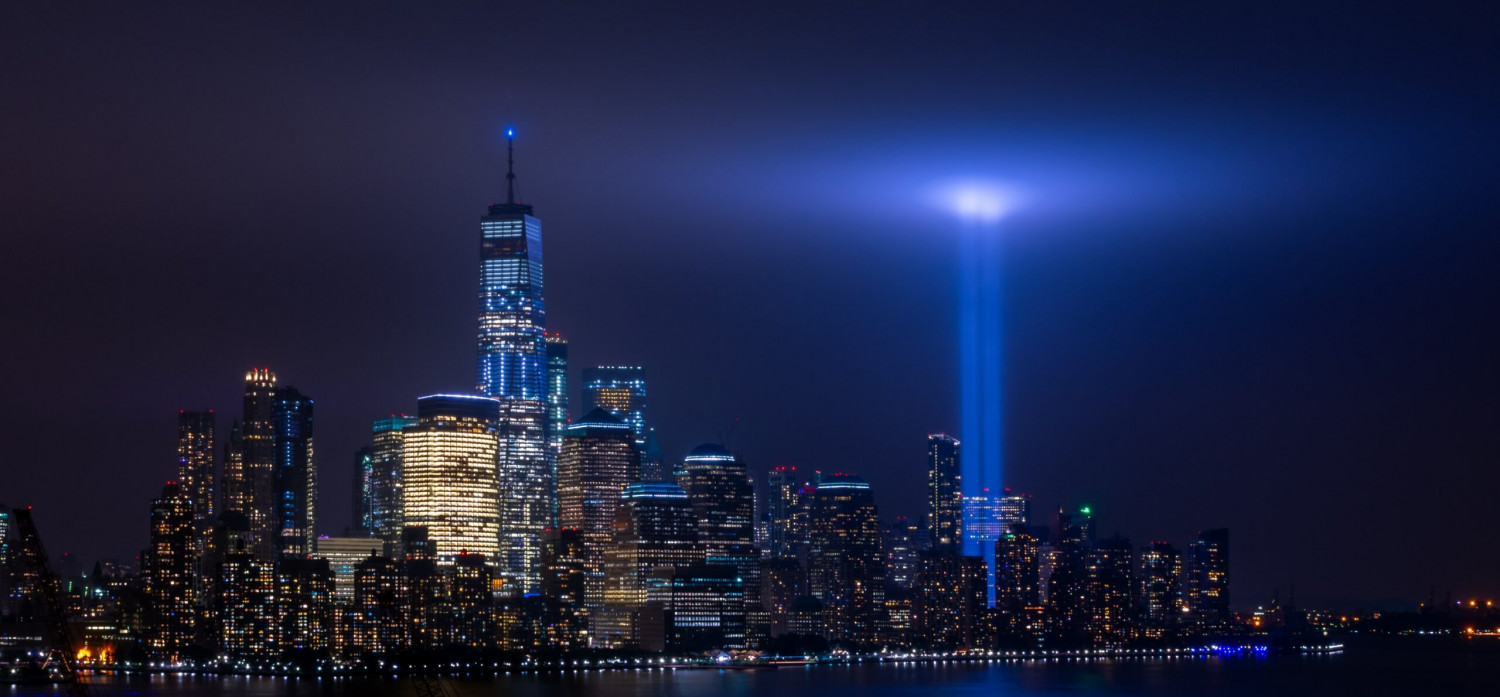“The more stable our democracies are, the less terrorists can harm us”
 Photo: Jesse Mills/Unsplash
Photo: Jesse Mills/Unsplash
Mr. Gabriel, on September 11, 2001, you were Prime Minister of Lower Saxony. When the news of the attacks in the U.S. reached you, did you have any idea of the impact they would have on the world?
I remember this situation very clearly because I had an Israeli friend as a guest in the Lower Saxony State Chancellery, with whom I wanted to celebrate my birthday on September 12. Of course, nothing came of it after the terrorist attacks in New York. We were sitting in my office when an employee rushed in and told us to turn on the TV. When we saw the live pictures, we thought it was some kind of disaster movie. When we realized that we had just witnessed these gruel attacks, we, like probably everyone else, sat front of these images, stunned and horrified.
In response to the attacks orchestrated by Al Qaeda, the U.S. and its allies invaded Afghanistan in October 2001; NATO declared an alliance emergency for the first time. Now, following the withdrawal of NATO troops a few weeks ago, the Taliban have immediately regained control of the country. What has the 20-year mission in Afghanistan achieved?
After the attacks, the UN Security Council approved a mandate for an international military mission in Afghanistan to dismantle Al Qaeda’s terrorist structures. That was a remarkable decision because it is normally very difficult to get veto powers like Russia, the U.S., and China on the same page in the UN Security Council. Following this decision and invoking the mutual assistance clause in Article 5 of the NATO Treaty, Germany also participated in this operation with its Bundeswehr. In sometimes heavy fighting with many dead and wounded, also in the Bundeswehr, it was finally possible to actually dismantle the structures of Al Qaeda and to eliminate its leader, Osama Bin Laden, in 2011. In this respect, the UN’s mission has been fulfilled. What the international military mission did not succeed in doing, and perhaps never could, was to engage in nation-building in Afghanistan by establishing democratic structures based on the model of Western societies.
The longer a war lasts, the deeper hatred and the desire for revenge dig into the souls of those affected. We see the result today.
The idea, of course, was not simply to leave the country to its own devices after Al Qaeda had been crushed, but to transfer it to reasonably stable state structures. Germany was one of the main proponents of this “nation building”. But as in Iraq, it became clear in Afghanistan that this idealistic approach could not be fulfilled. Anyone who asked the Bundeswehr soldiers and the police officers we had on the ground, was always reminded of the instability of this new “nation of Afghanistan.” This was truly no secret. Establishing a democratic society in almost medieval tribal structures proved impossible. There was simply a lack of democrats, however, especially among women and in large cities, many were very invested in democracy. But without the backing of international forces, they were unable to stabilize the country.
When, after a trip to Afghanistan in 2007, the then SPD chairman Kurt Beck expressed the conviction that it was also necessary to talk to the Taliban, he was laughed at, especially here in Germany. It would have been wiser to follow the advice he gave at the time and involve the Taliban. Of course, that would have been neither easy nor necessarily successful. But it would have given a chance to end the war ten years earlier. The longer a war lasts, the deeper hatred and the desire for revenge dig into the souls of those involved. We see the result today. And whether the new Taliban rule will not once again create a basis for international terrorism is an open question. There are parts of the Taliban movement that definitely do not want that, but there are also others who do.
Where do you see the greatest opportunities for countering extremism and terrorism today? What can the U.S. and Europe learn from each other when it comes to fighting and preventing the root causes of terrorism?
We are not helpless in the face of international terrorism, and recent years have shown that we are able to prevent attacks, at least here in Europe. But one thing is unfortunately also true: there is no such thing as absolute security, and attacks can also occur again. Not only by Islamist assassins, by the way, but also, as we have seen, by right-wing radicals.
The most important tool in the fight against fundamentalism and terror is a resilient and strong democratic society.
The most important tool in the fight against fundamentalism and terror is a resilient and strong democratic society. After all, the goal of these attacks is always to create chaos, in a perverse strategy aimed at shaking up democracy. The more stable our democracies are, the less terrorists can harm us. And, of course, it’s also about prevention: working with young people from the radical-religious milieu, better educational and advancement opportunities for young immigrants, breaking up radical Islamic mosque communities, and, of course, exchanges between intelligence agencies so that we know who is moving in our countries – something that we Germans view with skepticism and that is nevertheless necessary. Prevention and repression are two sides of the same coin in the fight against terror.
